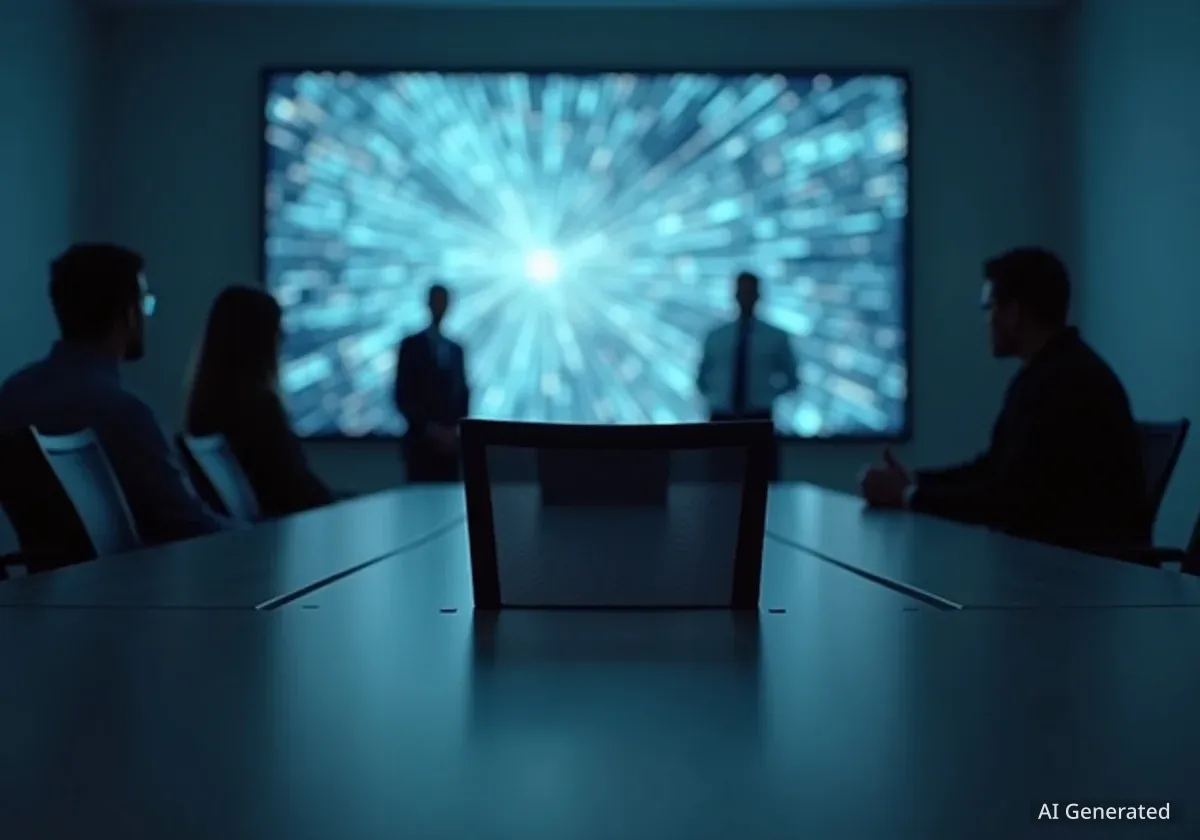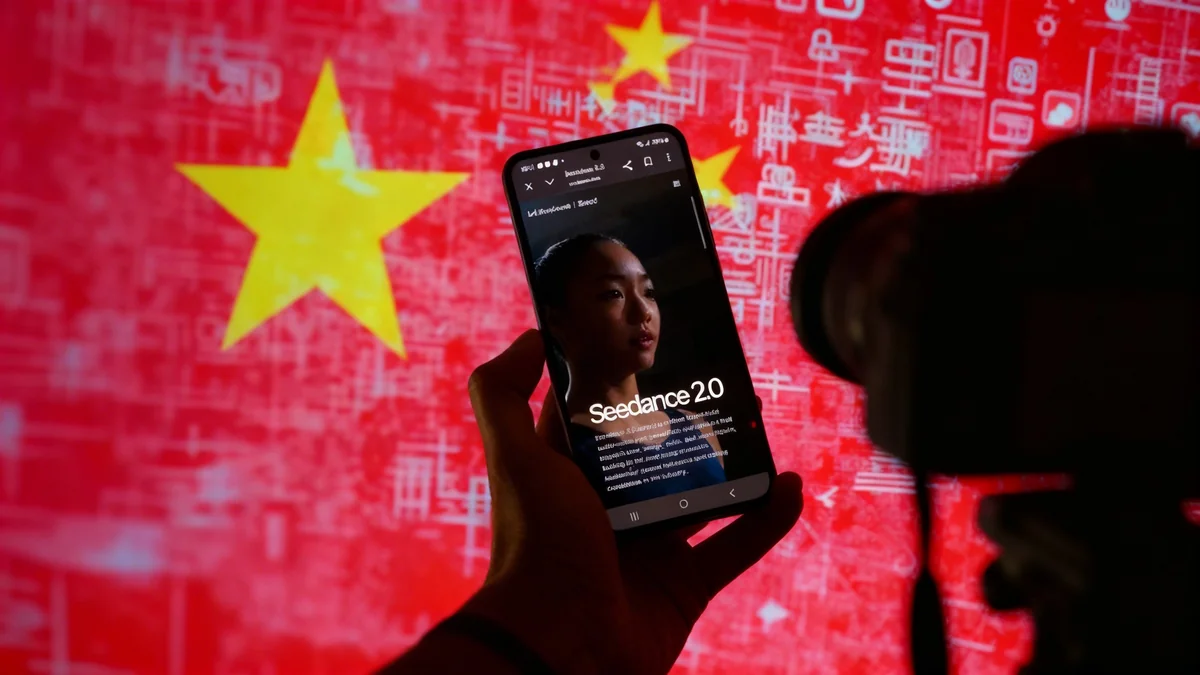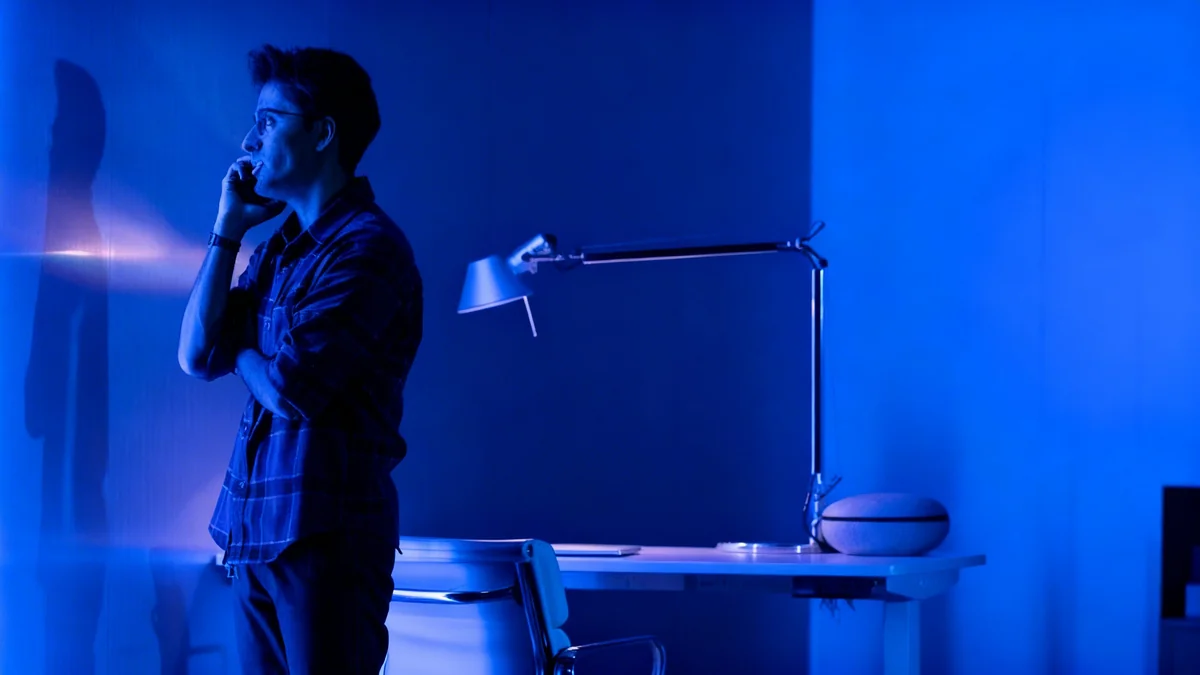An entirely AI-generated actress named Tilly Norwood has emerged from a U.K. production company, creating significant concern among actors and unions in Hollywood. The digital creation, designed to act, model, and serve as an online influencer, has intensified the industry's ongoing debate about the role of artificial intelligence in entertainment.
Norwood's debut at the Zurich Film Festival has prompted immediate reactions from talent agencies and performers, raising questions about job security and the future of human artistry in film and television. Her existence tests the boundaries established after the 2023 actors' strikes, which specifically sought protections against the use of AI.
Key Takeaways
- Tilly Norwood is the first fully AI-generated actress, created by U.K. production company Particle6 and its AI division, Xicoia.
- Her debut at the Zurich Film Festival has caused a strong backlash from actors' unions and talent agencies.
- SAG-AFTRA issued a statement opposing the replacement of human performers with synthetic ones, citing a lack of life experience and emotion.
- Creator Eline van der Velden describes Norwood as a creative tool, not a replacement for human actors, intended for projects that are difficult or impossible for humans.
- The controversy highlights the tension between technological innovation and the job security of thousands of performers in Hollywood.
Who is Tilly Norwood?
Tilly Norwood is a digital entity designed to function as an actress, model, and social media influencer. She is not a human being but rather a sophisticated computer-generated character powered by artificial intelligence. Her creators refer to her as a "digital human."
She was developed using generative AI models trained on extensive datasets of human faces, voices, and movements. This process allowed her creators at Particle6 to construct a photorealistic persona. Norwood is presented as a woman in her early 20s with a British accent and has an active online presence.
On social media platforms like Instagram, where she has amassed over 60,000 followers, Norwood's profile is curated to resemble that of an aspiring human actress. Her posts feature images from photo shoots, behind-the-scenes content, and personal updates, all crafted by writers and machine-learning prompts to build a relatable personality.
Profile of a Digital Performer
- Name: Tilly Norwood
- Type: Fully AI-generated "digital human"
- Creators: Particle6 (U.K. Production Company) and Xicoia (AI Talent Division)
- Key Individual: Eline van der Velden (Physicist and Producer)
- Public Debut: Zurich Film Festival industry summit
- Online Presence: Over 60,000 Instagram followers
The Industry Response to a Synthetic Star
The introduction of Tilly Norwood has been met with significant resistance from the entertainment industry, particularly from actors and the organizations that represent them. The primary concern is the potential for AI-generated performers to displace human actors, especially those in background and supporting roles.
This development comes less than two years after the 2023 SAG-AFTRA strike, a major labor dispute where protections against AI were a central demand. Actors fought to secure contractual limits on the use of their digital likenesses without consent and compensation. Norwood's arrival is seen by many as a direct challenge to these hard-won protections.
Union and Agency Stances
SAG-AFTRA, the union representing thousands of film and television actors, released a firm statement condemning the concept. The union argued that synthetic performers lack the essential human qualities needed for authentic storytelling.
"The union is opposed to the replacement of human performers by synthetics. It has no life experience to draw from, no emotion and, from what we’ve seen, audiences aren’t interested in watching computer-generated content untethered from the human experience."
Major talent agencies, including WME and Gersh, have publicly stated they will not represent AI clients. This move draws a clear line between using AI as a tool for visual effects and accepting a digital creation as a legitimate performer on their roster.
Reactions from Actors
Individual actors have also expressed their alarm. Actress Emily Blunt described the idea of an AI performer as "really, really scary." In an open letter, actress Betty Gilpin addressed Norwood directly, writing, "You look good. But you look empty... You make me feel alone." These comments reflect a deeper fear that AI cannot replicate the emotional connection that is fundamental to the craft of acting.
A History of Digital Characters
Hollywood has used digital characters for decades, but Tilly Norwood represents a significant shift. Previous digital figures, like Gollum from The Lord of the Rings or de-aged actors in films like Indiana Jones, were created through motion capture or visual effects that relied on the performance of a human actor. Norwood, however, is generated by AI and is presented as the performer herself, not as an effect augmenting a human's work.
The Perspective of Norwood's Creators
Eline van der Velden, the producer behind Tilly Norwood, has pushed back against the industry's fears. She maintains that Norwood is not intended to replace human actors but to serve as a new creative tool for filmmakers.
According to Van der Velden, AI performers can open up new possibilities for storytelling. They could be used in scenes that are too dangerous, expensive, or logistically complex for human actors. She frames the technology as an augmentation of the creative process, not a threat to it.
In public statements, Van der Velden has compared AI to "a new paintbrush" and has suggested that AI characters should be evaluated as a distinct genre of performance. She believes they should not be compared directly to human actors.
Despite initial hesitation from studios, Van der Velden claims that interest in Norwood is growing as the industry becomes more familiar with AI technologies. She has indicated that an announcement regarding talent representation for Norwood is expected in the near future.
Broader Implications for Entertainment
The debate over Tilly Norwood touches on fundamental questions about art, labor, and technology. Her existence forces the industry to confront what audiences and creators value most in a performance: the technical perfection of the final product or the human experience behind its creation.
Legal and Ethical Questions
The rise of AI performers like Norwood introduces complex legal and ethical challenges. Legal experts are examining the data used to train these AI models. If the models learned from the performances of real actors without their consent, it could lead to significant legal disputes over intellectual property and likeness rights.
Ethicists are also raising concerns about transparency. Many argue that audiences should be clearly informed when a performer on screen is not human. This transparency is seen as crucial for maintaining trust between creators and viewers.
The Future of Acting and AI
Whether Tilly Norwood becomes a star or remains a controversial experiment, she has already forced a critical conversation in Hollywood. The technology she represents is advancing rapidly, and its integration into filmmaking seems inevitable.
The central conflict is whether AI will be used as a collaborative tool to assist human artists or as a cost-saving measure to replace them. As Norwood continues to build her online presence, the entertainment industry is watching closely, aware that the future of their profession may be at a turning point.





